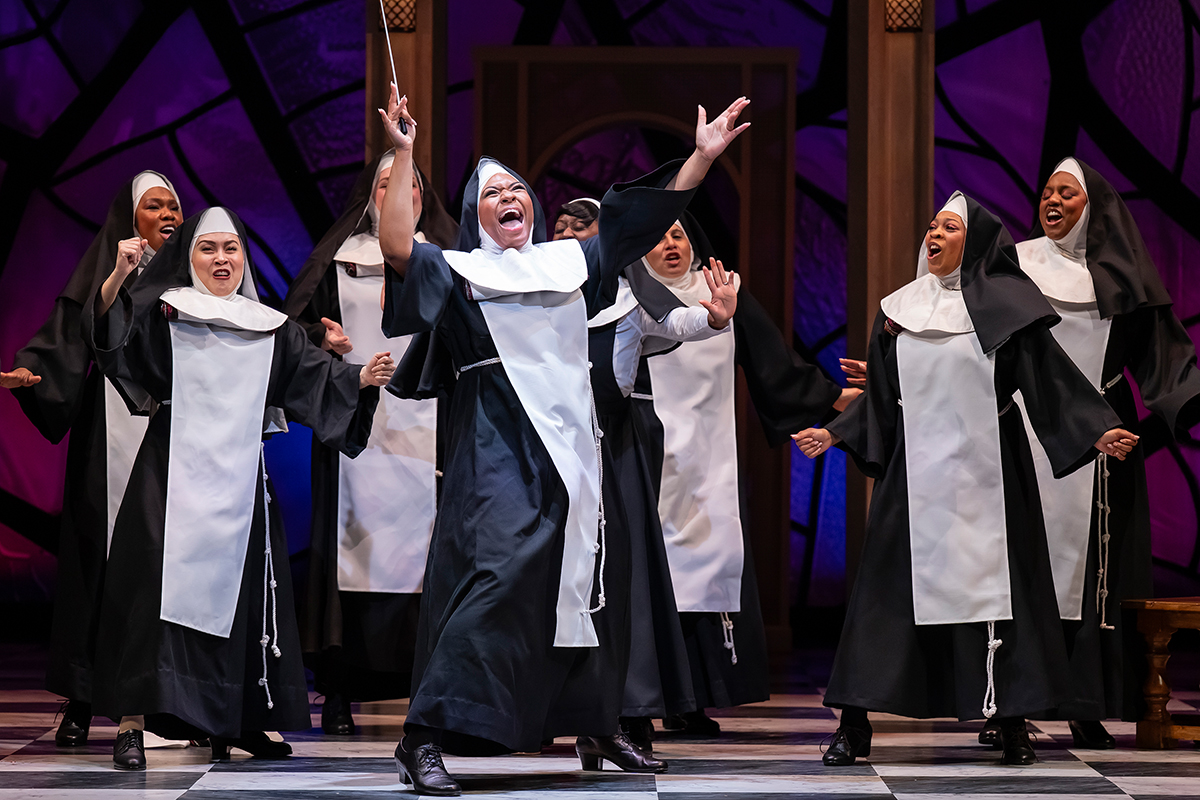‘cullud wattah’ is a Compelling Drama About Flint’s Toxic Water
Mosaic’s "cullud wattah" offers a vibrant staging of a tragic drama about the injustice of the Flint, Michigan water crisis.

In addition to depicting a family of Black women confronting the toxic water crisis in Flint, Michigan, Erika Dickerson-Despenza’s melancholy drama cullud wattah maintains a grim nightly tally of the toll paid by all of those affected.
As of the night I saw the play in its D.C. premiere production at Mosaic Theater, it had been 3,954 days since the citizens of Flint had clean water, according to a solemn acknowledgment by the cast.
That’s more than ten years since then-Michigan Governor Rick Snyder led the ill-conceived switchover of the city’s water supply to untreated water from the Flint River.
The toxic flow, initiated in 2014, further corroded already aging pipes and machinery, leeching dangerously elevated levels of lead into the public water supply, unleashing disease and despair on the populace.
That includes multiple generations of family living under the roof of fictional GM factory worker and widow Marion (Kelly Renee Armstrong). For her, and her mother Big Ma (Lizan Mitchell), pregnant older sister Ainee (Andreá Bellamore), and two daughters, Reesee (Khalia Muhammad) and Plum (Ezinélia Baba), the wounds and suffering are still fresh.
It’s 2016, and the family has taken a direct hit, with young Plum having just finished a round of chemo in her battle against leukemia. She seems still fragile, but spirited. Baba’s performance doesn’t precisely convey the girl’s emotional age or mental state but surely gets across that Plum has endured physical anguish, caused apparently by the lead poisoning.
Of course, the child’s anguish pains her whole family — although, in typical sibling fashion, older sis (and out lesbian) Reesee generally shows the least sensitivity for Plum’s ongoing torments. Rendered with appealing wit and dimension by Muhammad, Reesee does, however, pray to Yoruba water goddess Yemọja for clean water and better days.
Each family member is fired up to do something to set right the wrong dealt to them. Dickerson-Despenza winds compelling, if bleak, drama around their shared passion to reclaim power in a situation they had no power to prevent. Someone asks, “Is this environmental racism?” They represent different generations, each experiencing different harms and symptoms, and pursuing different strategies as they reach towards salvation.
Ainee, we learn, has inflicted a lot of pain upon herself, and her family, in her 37 years. She’s a fighter, and wants to turn her ire on the perpetrators of this injustice by convincing Marion to join one of the many class-action lawsuits being launched against Snyder and others responsible.
Bellamore’s portrayal has the character’s combativeness well in hand, but the unfathomable cost of Ainee’s previous losses doesn’t register. In general, the ensemble, under the direction of Danielle A. Drakes, suitably relays the familial bonds of women who have each other’s backs, even though they’re often at each other’s throats. Mitchell’s cantankerous, God-loving Big Ma best exemplifies those dynamics of tender care and tough love.
Armstrong puts across a strong portrayal, as Marion considers the moral, practical, and financial implications of not only the class-action suit but also a job offer that would have her mingling even closer with the enemy. She’s drowning in bills, and there are more and more mouths to feed in her household, so there’s a lot to consider.
The household itself, realized in Nadir Bey’s eye-catching set design, engages both as a charged visual metaphor, and through sheer intriguing detail, abetted by Hailey LaRoe’s excellent lighting. Dominated by PVC pipes painted to look like copper that snake over and around the family’s rambling home, the set serves as just one vessel of the show’s persistent water motifs.
Water plays a powerful part in the play’s captivating prelude, involving a slow-motion moment, accompanied by sound designer Navi’s evocative audio.
The moment is later reprised with even deeper meaning after experiencing the story of this family, five among the tens of thousands of Flint residents still counting the days since their town had clean water.
cullud wattah (★★★☆☆) runs through April 27 at the Atlas Performing Arts Center, 1333 H St. NE. Tickets are $42 to $78, with discount options and rush tickets available for each performance. Call 202-399-7993, ext. 2 or visit www.mosaictheater.org.
Support Metro Weekly’s Journalism
These are challenging times for news organizations. And yet it’s crucial we stay active and provide vital resources and information to both our local readers and the world. So won’t you please take a moment and consider supporting Metro Weekly with a membership? For as little as $5 a month, you can help ensure Metro Weekly magazine and MetroWeekly.com remain free, viable resources as we provide the best, most diverse, culturally-resonant LGBTQ coverage in both the D.C. region and around the world. Memberships come with exclusive perks and discounts, your own personal digital delivery of each week’s magazine (and an archive), access to our Member's Lounge when it launches this fall, and exclusive members-only items like Metro Weekly Membership Mugs and Tote Bags! Check out all our membership levels here and please join us today!






















You must be logged in to post a comment.